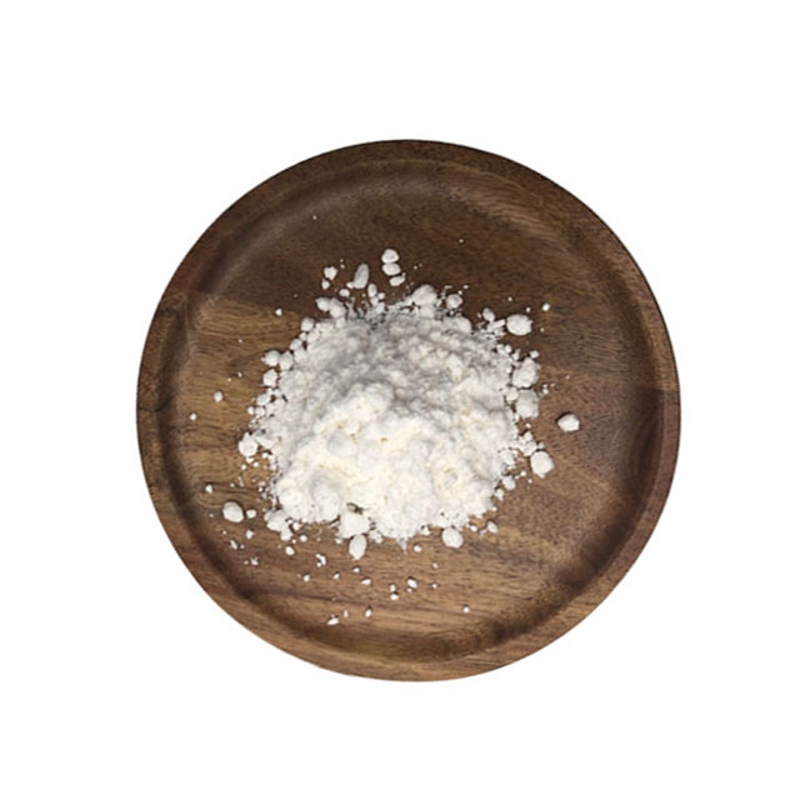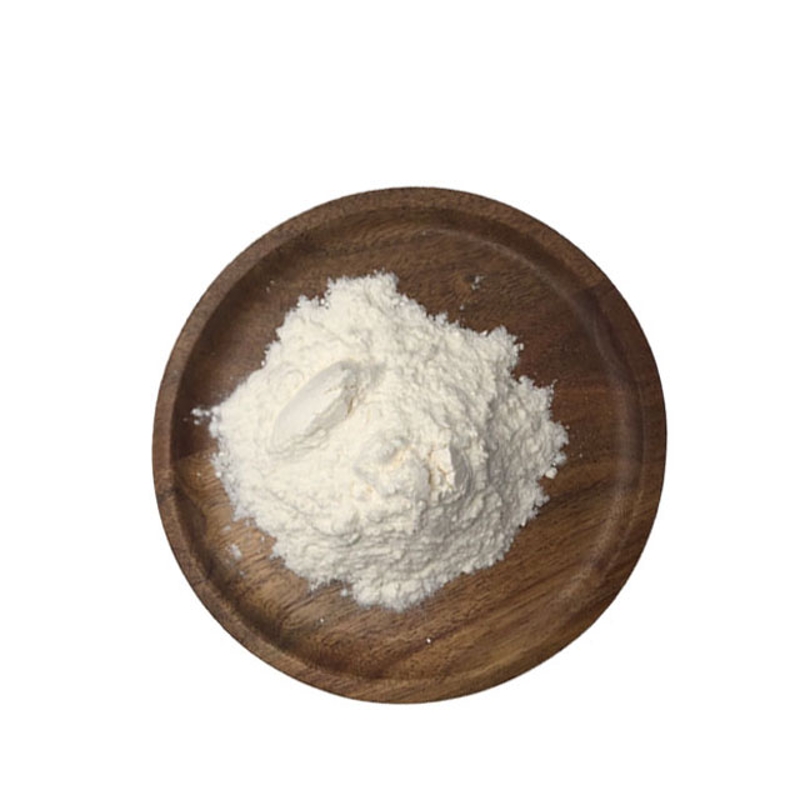Domestic PD-1 antibody! Baiji Shenzhou tirelizumab combined with sitravatinib in the treatment of platinum resistant ovarian cancer shows therapeutic potential!
-
Last Update: 2019-12-14
-
Source: Internet
-
Author: User
Search more information of high quality chemicals, good prices and reliable suppliers, visit
www.echemi.com
December 14, 2019 news / Biogen / -- biogene is a biomedical company in the commercial stage, focusing on the development and commercialization of innovative molecular targeting and tumor immune drugs for cancer treatment; mirati therapeutics is a targeted tumor drug company in the clinical stage The two companies recently announced an ongoing phase 1b clinical trial of anti-PD-1 antibody combined with tyrosine kinase inhibitor sitravatinib in the treatment of platinum resistant ovarian cancer The preliminary data show that the combination has antitumor activity and overall tolerance The results of the phase 1b trial were presented at the 2019 ESMO I-O conference in Geneva, Switzerland, on December 13, 2019 "Tirarizumab and sitravatinib have antitumor activity as single drugs, and the data of early combined use also shows that the combination has certain potential in the treatment of advanced solid tumors, including platinum resistant ovarian cancer, which we are also encouraged by," said Ben Yong, MD, chief medical officer of tumor immunology in Baiji Our cooperation with mirati therapeutics continues to make new progress, and I look forward to more patients being enrolled in this trial, as well as more clinical data of tirelizumab combined with sitravatinib, a unique tyrosine kinase inhibitor " Charles M Baum, MD, MD and MD, CEO of mirati therapeutics commented: "we believe that sitravatinib, as a tyrosine kinase inhibitor targeting multiple receptors, may be helpful in the treatment of drug-resistant solid tumor patients with anti-PD-1 antibodies such as tirelizumab Therefore, we are looking forward to this cooperation with Baiji Shenzhou The results of the first phase 1b trial also support the further development of the combination for the treatment of advanced solid tumors, including platinum resistant ovarian cancer " Summary of preliminary results of phase 1b clinical trials for platinum resistant ovarian cancer summary No 94O: this open, multicenter phase 1b clinical trial of tirelizumab combined with sitravatinib (clinicaltrials.gov Registration No.: NCT03666143) consists of nine groups of patients with advanced solid tumor specific diseases The results presented at the ESMO I-O meeting were from Group E of 20 patients with recurrent platinum resistant ovarian cancer who had not previously received anti-PD-1 / PD-L1 treatment The patients received intravenous tirelizumab at a dose of 200 mg once every three weeks and sitravatinib at a dose of 120 mg once a day As of July 17, 2019, 17 patients met the evaluation criteria The preliminary results include: (1) seven patients achieved partial remission (PR), including four confirmed PR; the overall remission rate (ORR) was 23.5% (4 / 17, 95% confidence interval: 6.8%, 49.9%); eight patients achieved disease stability (SD) (2) Median duration of remission (DOR) has not been achieved (95% confidence interval: 12.29 weeks, not yet achieved) (3) Median progression free survival (PFS) was 18 weeks (95% CI: 12.29 weeks, not yet achieved), and the PFS rates at three and six months were 88.2% (95% CI: 60.6%, 96.9%) and 35.3% (95% CI: 9.0%, 63.8%), respectively (4) All 20 patients in the group experienced adverse events (teaes) during any level of treatment; 15 patients (75%) experienced at least one third level or above of teaes, the most common one was hypertension The immune related teaes were hypothyroidism (20%), diarrhea (15%) and rash (15%); six patients (30%) interrupted the trial due to teae; and two patients died of teae, abdominal pain and respiratory failure, all of which were not related to the treatment In January 2018, baichi and mirati therapeutics signed an exclusive license agreement for the development, production and commercialization of sitravatinib in Asia (excluding Japan), Australia and New Zealand The clinical trials of tirelizumab combined with sitravatinib are being carried out in non-small cell lung cancer, renal cell carcinoma, melanoma, liver cell carcinoma and gastric cancer About tirelizumab tirelizumab (bgb-a317) is a monoclonal antibody against programmed death receptor-1 (PD-1) of human lgg4, which is under research The design purpose is to minimize the binding with Fc receptor in macrophage Preclinical data show that Fc receptor binding in macrophages can activate antibody dependent cell mediated killing of T cells, thus reducing the anti-tumor activity of PD-1 antibody Tirelizumab is the first candidate drug developed by Baiji's immune tumor platform It is currently being developed as a single drug therapy and combination therapy for a series of solid tumor and blood tumor treatment indications China's National Drug Administration (nmpa) drug review center (CDE) is reviewing the new drug market application (NDA) of tirelizumab for the treatment of R / R CHL patients and for the treatment of locally advanced or metastatic UC patients who have previously received treatment, both of which are included in the priority review Baiji Shenzhou has the global development and commercialization authorization for leilizumab About sitravatinib sitravatinib is a kind of receptor tyrosine kinase inhibitor under research, which may be able to inhibit receptor tyrosine kinase (RTK), including Tam family receptor (TYRO3, Axl, MER), split family receptor (VEGFR2, kit) and ret As a candidate immunotumor drug, sitravatinib is being evaluated in combination with an anti-PD-1 immunocheckpoint inhibitor for cancer patients who are still progressing after receiving immunocheckpoint treatment The strong inhibition of sitravatinib on TAM and split subfamily RTK may be able to reverse targeting, enhance antigen-specific T-cell remission and expand the presence of dendritic cell-dependent antigens in the immunosuppressive tumor microenvironment to solve the resistance to immunosuppressive checkpoint inhibitors Sitravatinib is being evaluated in a number of clinical trials for the treatment of cancer patients who relapse after receiving immunocheckpoint inhibitors, including a phase 3 trial in which sitravatinib, a potentially registered combination of patients being enrolled and a checkpoint inhibitor, is being used to treat patients with non-small cell lung cancer (NSCLC) In addition, sitravatinib in combination with immunocheckpoint inhibitors was evaluated in the treatment of specific patients who had not previously been treated with immunocheckpoint inhibitors Sitravatinib is also being evaluated as a single drug in a phase 1b extended clinical trial to treat cancer patients with specific mutations in CBL proteins When the CBL protein loses its activity under mutation, multiple RTKs including Tam, VEGFR2 and kit will appear maladjustment and may be the driving factors of carcinogenesis in NSCLC and melanoma Original source: Baiji Shenzhou
This article is an English version of an article which is originally in the Chinese language on echemi.com and is provided for information purposes only.
This website makes no representation or warranty of any kind, either expressed or implied, as to the accuracy, completeness ownership or reliability of
the article or any translations thereof. If you have any concerns or complaints relating to the article, please send an email, providing a detailed
description of the concern or complaint, to
service@echemi.com. A staff member will contact you within 5 working days. Once verified, infringing content
will be removed immediately.







